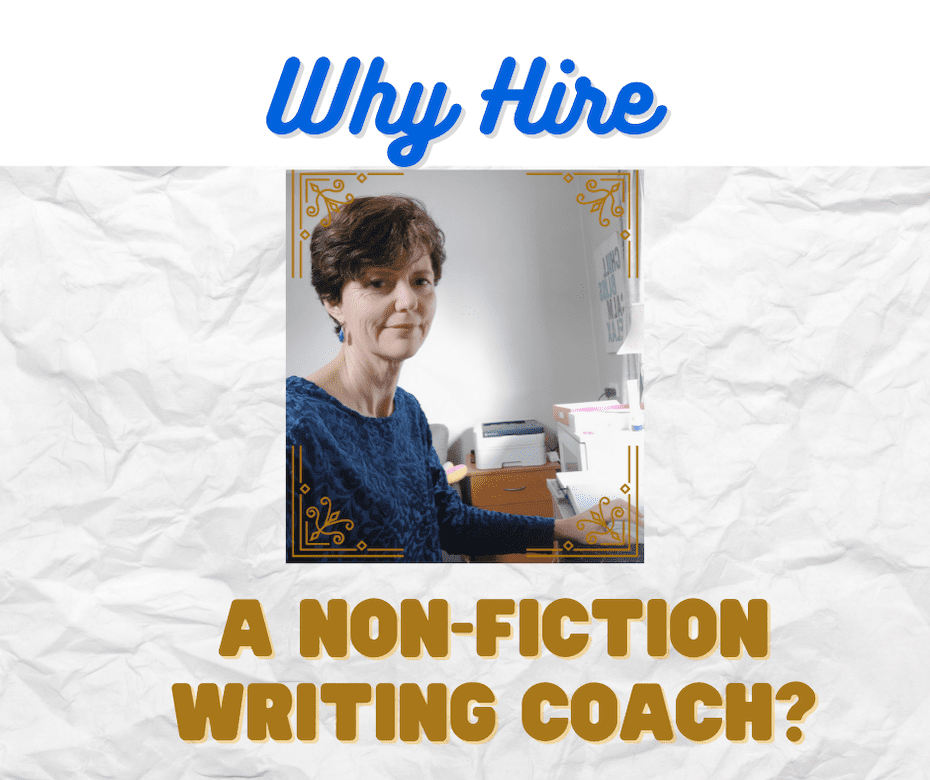If you’re writing a non-fiction book, like self-help, how to, spiritual, etc, you may find that you come to a point where this writing stuff is making the hair on your head fall out. Rather than see all that hair on the floor while you re-write your first two chapters, you might want the support of a non-fiction writing coach.
What writing coaches do is support your main book writing goal, help you at the start with an outlining technique (see our mini-course), and regularly point out some literary tools. This helps the book to flow better.
A one-to-one writing coach like Jennifer can help keep the amateur writer on track to a self-imposed deadline. One way is by using a simple table to type out a six-month plan. Jennifer Lancaster normally coaches writers via fortnightly Zoom calls and spends a few hours on editing and commenting on the chapters as they come along. (This process offers good value for money).
As an editor for many years I saw (and changed) a lot of repeated words throughout any given book. One writer had written ‘however’ 400 times! If she was using a book writing coach instead, she would have learned to think of alternatives, like ‘that is’, ‘but’, ’in contrast’, ‘conversely’, as these would be given as suggestions.
Because most of the writers helped in non-fiction space (apart from memoir) have a consultancy or other business, the book coach likes to help them plan their writing time and keep to that plan. Little reminders will be sent if communication from the writer drops off.
Some Free Non-Fiction Book Writing Coach Tips
If you are a morning person, write in the mornings for 1.5 to 2 hours. Why so long? Because it takes about 20 minutes just to get back to where you were and turn the creative turbocharger on. So, you will achieve a lot more in blocks than in bits.
Make a Hook or Three
Before setting out, it’s important to get a clear idea of the key points people will respond to, if in that situation. An example from Writing Successful Self-Help & How-To Books is: “There are six major flash points that cause businesses to fail in their first year.” (This is a hook for a book proposal).
In your book blurb you’ll use a clever hook, but why stop there? Why not keep brainstorming to create key ideas that will make a reader stop and think. A dramatic phrase will open a chapter with a bang not a whimper.
Chapter Structure and Sentence Structure
Each chapter should have an Introduction paragraph, which flows into what it will be about (but it can equally be a story). Then comes the body of the chapter, developing that mini-theme so people new to the concepts will understand. In the conclusion of the chapter, you will sum up the implications or in some cases, having a list of key points learned helps retain the information.
Another tip: try to write a variety of sentence lengths. It pleases the reader’s ear and is so much easier to consume. My SEO tool pointed out I had 30% of sentences over 20 words. Apologies. I must write simpler, shorter, and sharper.
Case Studies or Composites
Sometimes you cannot find a case study that illustrates your point. If you have a range of past clients and many had a variation of an issue, you can create a composite. First put down the points you want to make, then think of all the people whose stories came up with part of this issue, write these down roughly, and finally arrange the elements into a single anecdote, with a made-up name, that illustrates how one can learn this. The thing is, don’t tidy it up too neatly as otherwise it won’t ring true.








